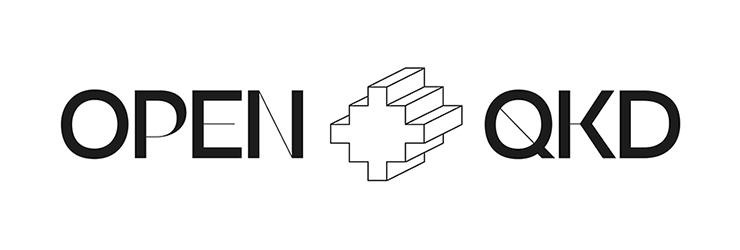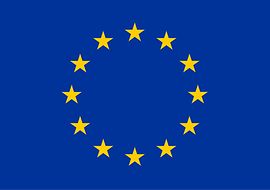OPENQKD
Open Quantum Key Distribution

The economic, political, and social prosperity of European citizens depends on secure information and communication technologies. Due to the constant advances of hardware and software in information technology and other innovative technologies such as the upcoming quantum computers, conventional encryption methods based on mathematical algorithms are endangered at present and can be classified as "no longer secure". Alternative methods to the currently used public-key encryption, in particular those methods that are realized through the application of new quantum technologies, are more in demand today than ever before.
OPENQKD (acronym for "open quantum key distribution") has completely changed the way we see, understand and use quantum communication. The focus of the research project was on the creation and testing of a testbed for a communication network based on quantum-mechanical encryption methods. The properties of quantum mechanics were used to provide two people with a common, real random number. This number, which is used in cryptography as a secret key, allows data to be transmitted with a very high degree of security.
During the project a Document on the Current Standardisation Landscape and existing Gaps in the Area of Quantum Key Distribution was developed and published on 22nd March 2021.
Project duration
02.09.2019 – 01.09.2022
Coordinator
- AIT Austrian Institute of Technology GmbH (Austria)
Participants
- ADVA Optical Networking SE (Germany)
- Deutsche Telekom AG (Germany)
- German Aerospace Center e. V. (Germany)
- Ludwig-Maximilians University of Munich (Germany)
- Max-Planck-Institute for the Science of Light (Germany)
- Rohde & Schwarz Cybersecurity GmbH (Germany)
- German Institute for Standardization (Germany)
- Austrian Academy of Sciences, Institute for Quantum Optics and Quantum Information (Austria)
- Citycom Telekommunikation GmbH (Austria)
- fragmentiX Storage Solutions GmbH (Austria)
- Medical University of Graz (Austria)
- ID Quantique SA (Switzerland)
- Mt Pelerin Group (Switzerland)
- Services Industriels de Genève (Switzerland)
- University of Geneva, Quantum Technology group
University of Geneva, University Hospitals of Geneva (Switzerland) - University of Sarajevo (Bosnia and Herzegovina)
- Agency for Data Supply and Efficiency (Denmark)
- Technical University of Denmark (Denmark)
- British Telecommunications plc (United Kingdom)
- National Physical Laboratory (United Kingdom)
- The Chancellor, Masters and Scholars of the University of Cambridge (United Kingdom)
- Toshiba Research Europe Ltd (United Kingdom)
- Mellanox Technologies Ltd (Israel)
- University of Padova (Italy)
- Centre National de la Recherche Scientifique (France)
- iXBlue Photonics (France)
- Nokia Bell Labs France (France)
- Orange (France)
- Telecom ParisTech (France)
- Thales S.A. (France)
- Delft Technical University (Netherlands)
- Institute of Bioorganic Chemistry of the Polish Academy of Sciences, Poznan Supercomputing and Networking Center (Poland)
- Fundación IMDEA Software / REDIMadrid (Spain)
- ICFO – The Institute of Photonic Sciences (Spain)
- Telefonica Investigación y Desarrollo (Spain)
- Universidad Politécnica de Madrid, Research Center for Computational Simulation (Spain)
- Technical University of Ostrava (Czech Republic)
Project funding
This project has received funding from the European Union’s Horizon 2020 research and innovation programme under grant agreement No 857156.
